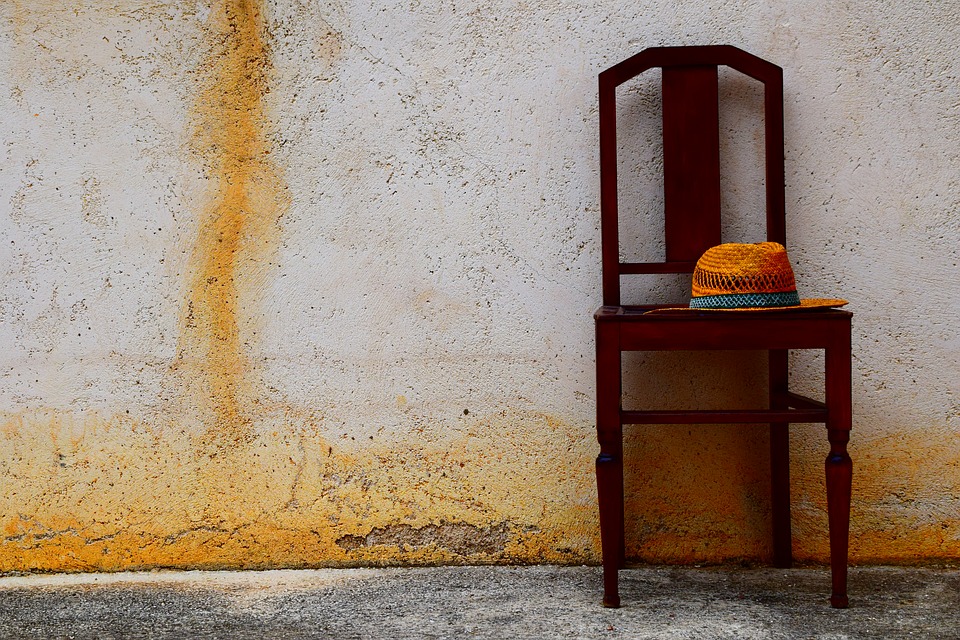It is Okay to Not Be Okay: Overcoming the Stigma of “Negative” Emotions

Playing with Pain
January 15, 2018


At the Corner of Grief and Love
February 14, 2018

She seemed so brave at the funeral, she didn’t cry at all.”
“They died six months ago… don’t you think it’s time you moved on and didn’t talk about it so much?”
“Focus on the positive and be strong! The rest of your family needs you! At least you still have them!”
“Don’t bring that up when you see them… it might make them sad. I want to protect them so they don’t fall apart.”
“Smile! It will get better.”
Many of us who have experienced loss or the death of a loved one have heard similar comments. When bereavement first occurs other people flock to our side with words of support. The phone rings more often than it normally does. Friends hold our hands while we weep. They patiently listen to us talk about our loved one.
As time passes, however, we may find that people are increasingly less patient and don’t want to listen to our stories anymore. They seem uncomfortable when we cry. The phone may ring even less than it did before that moment… when everything changed. That moment when it felt like the world stopped spinning, at least for us.
Eventually we realize the world has continued moving on, while it feels like we are standing still. We feel alone in our grief.
Why do people pull away from those who are going through a period of mourning? There could be any number of reasons. Maybe they don’t know what to say. Maybe they are busy and caught up in their own lives. It might be that the death of our loved one reminds them of the stark reality of death and loss. Or maybe our tears frighten them, because they don’t know how to fix it.
We live in an Instagram-ready world. Advertisements and the media are constantly inundating us with exhortations to look our best, be the best, focus on the positive. Anything to keep up the facade. Society also pushes us to “fast fixes” with promises of “Just one pill,” or “Success overnight!”
As a result there seems to be little acceptance for anything other than “perfect.” All those messy emotions? Stuff them down inside and keep your head up. Life goes on, right?
We are conditioned from an early age that “sad is bad.” We hear other people say things like “Cheer up!” “Don’t let them see you cry,” or, “It’s not that bad!” They claim it is because they want to help and protect us, and that may be true.
It is also true that seeing people upset makes others uncomfortable, and humans don’t like to feel uncomfortable. We want comfort. Perfection. Quick fixes. We don’t want painful or sad or messy.
When other people see us grieving they often begin to think of not only our discomfort, but also their own. Then they do whatever they think they can to make that discomfort stop. They want to “fix” it. This results in insensitive remarks that they think are said with the best of intentions. They think that it is their job to make it better. However, they often don’t realize that their desire to make it better may be because of their own uncomfortable feelings. It’s selfish, and they have no idea they’re doing it.
Here’s the reality: It is okay to NOT be okay.
Anger, sadness, bitterness, pain, grief~ these are not actually BAD emotions even though they may make us feel bad. They are an important part of the human experience with all its highs and lows.The full spectrum of life needs to be embraced in order to really live it. Birth and death. Love and loss. Joy and suffering. They are all a part of what makes our time on this earth so meaningful. To cut ourselves off from any one of these things means to deny ourselves the opportunity to experience the fullness of life and explore what it truly means to be human.
Why is it so often considered “brave” to put on a face of calm stoicism in the midst of our trials? Isn’t it equally brave to allow ourselves to weep and wail and gnash our teeth at the depth of our pain and at the unfairness of it all?
Grief comes in many forms. We may grieve the death of a loved one, the end of a relationship, the loss of a job, the loss of our health, or the reality that something we dreamed about will never come true. No matter what the source of that grief is, when something hurts we should allow ourselves, and others, the chance to experience and work through that grief. Hiding from it or burying it just causes more problems in the long run.
I recently watched a powerful video in which chaplain & storyteller Kate Braestrup shared thoughts on, “What a five-year-old taught me about grieving.” In the video she talks about the death of her husband and describes the way she was treated by people who wanted to “manage” her. They seemed to think that if she was allowed to do what she felt she needed to do to care for her husband she would fall apart. When they finally left her alone with her husband’s body and let her dress him in his uniform it was a sacred experience. Even though it was painful, it was also beautiful and healing.
She then went on to talk about 5-year-old Nina, whose 4-year-old best friend and cousin had died. Nina insisted that she wanted to see Andy, and her parents were concerned, saying, “We want to protect her.” Finally, after much worry, they decided to allow young Nina to spend time with her cousin’s body and pay her respects.
The scene that transpired was sacred and beautiful and healing. Nina got what she needed and she was able to say goodbye. I encourage you to watch the video for yourself to hear the whole story.
Then came a realization after Nina’s tender goodbye:
You can trust a human being with grief.
Nina knew what she needed. People know what they need. So ask them. Listen to them. Then give them the freedom to express themselves and heal and mourn in their own way and in their own time.
It is only natural to try and protect those we love. I think if we were honest with ourselves, however, we would realize that we also try to protect them from some things because it would actually be too hard for US.
Grief is messy. It’s raw. Unfiltered. Honest. And that makes us uncomfortable. But we don’t have to be afraid of it or of any other emotion. We allow ourselves to feel them and learn from them. We can grow stronger because of them.
We grieve because we love, and love is powerful. Or, as Kate Braestrup so eloquently stated at the end of her video:
“Walk fearlessly into the house of mourning; for grief is just Love squaring up to its oldest enemy. And after all these mortal human years, Love is up to the challenge.”
Love is up to the challenge.
~~~~~~~~~~~~~~~~~~~~~~~~~~~~~~~~~~~~~~~~~~~~~~~~~~~~~~~~~~~~~~~~~~
Jennifer Roberts Bittner
Certified Celebrant/ Life Tribute Specialist
Morrissett Funeral and Cremation Service
6500 Iron Bridge Rd.
N. Chesterfield, VA 23234
Serving the Richmond area since 1870




